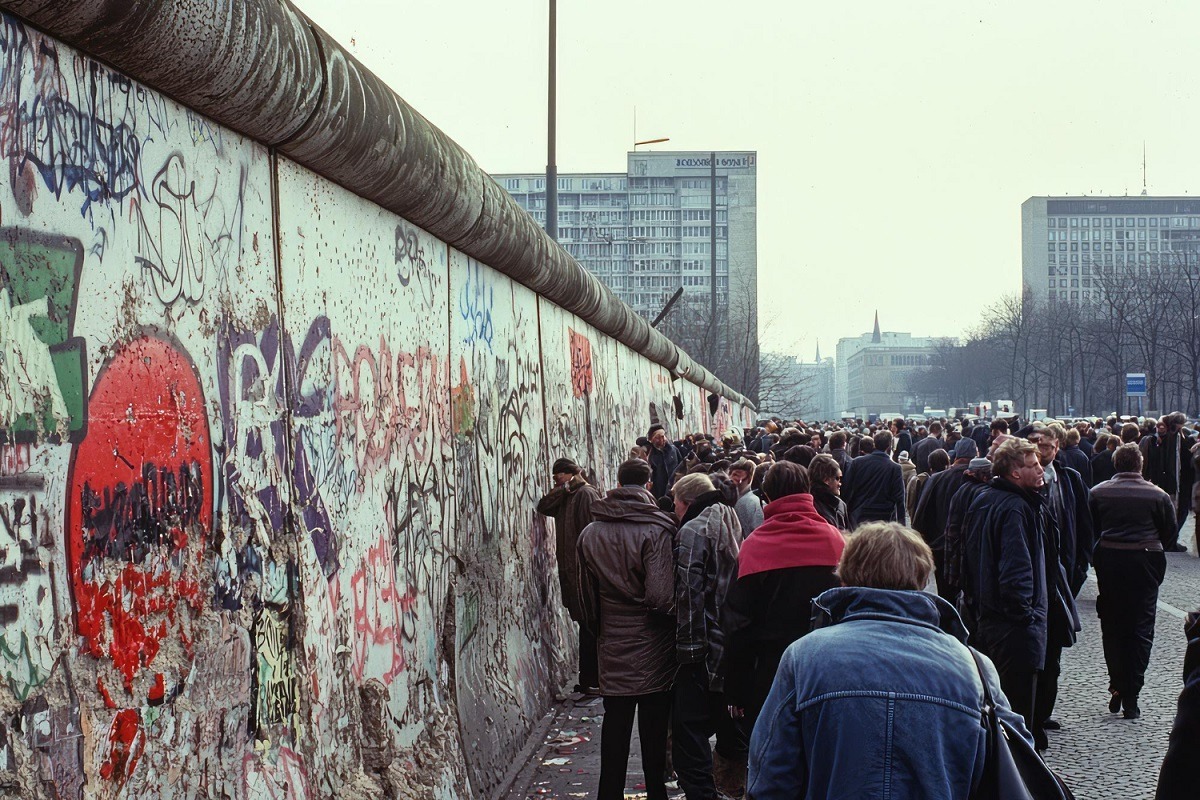The pulse of rebellion and unity
In the late 1980s, East and West Berlin were divided not just by a physical wall but by ideological standpoints that permeated every aspect of societal life.
Music, however, soared over these ideological barriers, becoming a vital tool for communication and mutual identification among the youth on both sides of the wall. At its core, music carried the echoes of freedom, change, and unity.
Influence on grassroots movements
In East Germany, particularly, Western music was both coveted and condemned, creating a vibrant subculture desperate to cling to the tantalizing tunes of artists like David Bowie, Bruce Springsteen, and the Rolling Stones.
These artists were viewed not just as musicians but as voices of freedom, offering a glimpse into a world of expression prohibited by socialist governance.
Pivotal concerts and symbolism
Perhaps the most iconic moment was when Bruce Springsteen performed in East Berlin in 1988. This concert is often touted as a significant catalyst in the series of events that eventually led to the fall of the Berlin Wall.
During this historic event, Springsteen made a powerful proclamation: “I’m not here for any government. I’ve come to play rock and roll for you, in the hope that one day all the barriers will be torn down.”
The euphoria and its ripple effects
The excitement and solidarity experienced during concerts transcended the immediate music events. It permeated into daily life, contributing to a growing sense of dissatisfaction with oppressive regimes and showcasing an alternative communal way of life that was more appealing to many citizens.
Music as a subtle disruptor
On a more granular level, music employ became a psychological disruptor, subtly altering perceptions and opening minds.
Scientists assert that music not only entertains but also enlightens, enriches communal bonds, and empowers individuals by fostering an environment where change is possible and desirable.
Impact on mental health and morale
During these turbulent times, music proved to be a crucial outlet for emotional expression and coping. F
or many Germans, both East and West, songs became anthems of hope and resistance, sustaining not just their protest but their psychological well-being.
Reclaiming cultural identity
Music also played a significant role in shaping a new cultural identity post-fall. This ingrained sense of community and shared traditional Western ideals was integral in redefining the new Germany.
This period of cultural renegotiation highlighted the potent influence music holds in re-molding societal values and national identity.
Legacy and continuation in modern activism
Today, the legacy of music’s influence during the fall of the Berlin Wall resonates in modern forms of protest and societal change globally. It underscores music’s enduring power as a form of peaceful protest and its ability to unite individuals across various divides.
The fall of the Berlin Wall remains one of the most dramatic symbols of the 20th century not merely because of its physical presence but because of what it represented in the hearts and minds of the people who lived around and beyond it.
Music’s role in this dynamic, played out on a stage of global tensions, reminds us of the intrinsic human connection to art and its profound ability to reshape the world.
In examining music’s impact on the fall of the Berlin Wall, we gain insight into more than historical events; we learn of humanity’s unending quest for freedom, dignity, and unity through the universal language of music.






